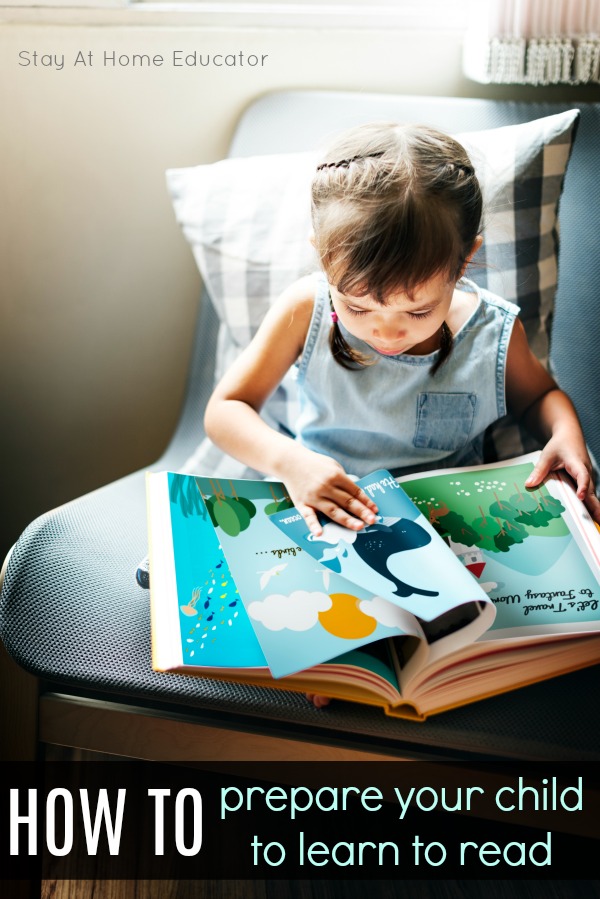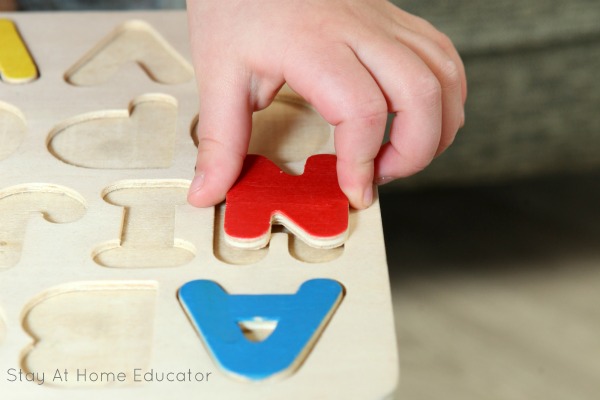Although all children develop at their own pace, there are reading readiness skills that children commonly and predictably develop based on their age. These preschool pre-reading skills help parents and educators know what to look for as a child’s development is followed, and it can alert parents and caregivers to any reading skills that may need extra attention.
Pre-Reading Skills for Every Preschooler

According to Statistics Brain, not many people love reading. They claim that 50% of US adults are unable to read a grade 8 level book, 42% of college graduates will never read another book following graduation, and 70% of adults haven’t stepped foot into a bookstore in the last 5 years.
Source
Now, hold on here…people do read. After all, in today’s world, we basically can’t function without reading. We read while driving. We read while shopping. We read social media.
But sadly, those examples aren’t substantive.
The above quote presents a huge problem in that most experts would agree that reading single most important academic skill, and if adults aren’t reading, then our children probably aren’t either.
But given the fact that you found yourself here, on this blog post specifically about pre-reading skills, I know that you are a reader, or at the very least that you want your children to be readers.
Welcome!
What Are Preschool Pre-Reading Skills?
Simply put, pre-reading skills are the skills your child needs in their arsenal before they learn to read. These are things that will ease the stress and difficulty of learning to read when they begin formal education. Helping develop pre-reading skills is one of the best things a parent can do to prepare their child for reading.
And, it’s easier than you might think.
The Six Pre-Reading Skills Every Child Needs
There are six primary pre-reading skills children develop before and during preschool that if learned appropriately, aid dramatically in easing their learning to read. Actually, I tend to believe there are really only four, the first two being bonus pre-reading skills that kinda’ fall into other skills, too.
Because if you have read my post about what the brain has to do to learn to read, you know the brain has to work really hard.
And if you read my post about what every parent need to know about learning to read, you know it doesn’t come easily for a lot of kids.
This article by Regis College sums of literacy statistics in the United States. And they are staggering. So we’ve got to teach pre-reading skills in preschool and at home so we can have a literate nation!
Pre-Reading Skill 1: Print Motivation
Print motivation means being excited about and interested in reading books. Parents should read in front of their children.
How to Encourage Print Motivation
- Make print visible to your child. Even if it is a grocery list, recipe, or E-mail. Show that you also enjoy reading.
- Read with your child every day.
- Read with a natural, but cheerful voice.
- Allow your child to choose his own books from the library or book basket.
- Help your child find books that are of an interesting topic to her.
Pre-Reading Skill 2: Narrative Skills
Having narrative skills means being able to describe things and retell story events, although for a young toddler this may simply be repeating major nouns found in the pictures.
How to Encourage Narrative Skills
- Engage your child in pretend play.
- Make up stories to tell to your child.
- Invite your child to tell you a story (even if it is one from a familiar book).
- Ask open-ended questions while reading books.
- Read repetitive books. (The predictability helps younger children.)

Pre-Reading Skill 3: Print Awareness
Print awareness is noticing print and understanding it has a function, that each word on a page represents a spoken word.
Print awareness also includes knowing how to handle a book, which side is the cover, how to hold the book, and how to turn pages one by one and which way to turn the pages.
How to Encourage Print Awareness Skills
- Allow children to handle books.
- Help your child to recognize which way to hold a book and which way to turn pages.
- Point to words as they are read.
- Point out familiar words, like your child’s name or common public places.
Pre-Reading Skill 4: Vocabulary
In this sense, vocabulary simply means knowing the names of things and connecting them to objects, feelings or ideas. Sometimes this is referred to a child’s oral language skills.
It’s the connection piece here that is so important. There is no need to use gimmicky flashcard programs. The same claims for building vocabulary can be achieved in very simple ways.
How to Build your Preschooler’s Vocabulary
- Read non-fiction books, full of pictures.
- Read picture books, too.
- Use words an expansive vocabulary when you speak to your child. If you use a “big word”, explain what it means.
- Explain unfamiliar words while reading.
- Invite your child to describe toys or objects. Help him find the right words to explain something.
Pre-Reading Skill 5: Phonological Awareness
Phonological awareness is the piece that comes before phonics. It is being able to hear that words are made up of smaller sounds and playing with those individual sounds.
How to encourage Phonological Awareness Skills
- Encourage your child to say silly things.
- Create word riddles for your child to solve.
- Challenge your child to change the beginning sound in a word or the end. For example, from cat to fat to sat, or cat to can to cap.
- Sing to your child and share nursery rhymes.
Pre-Reading Skill 6: Letter Knowledge
Letter knowledge is understanding that letters look different from one another and have their own name and sound. It encompasses everything involved in helping a child learn to identify letter names and sounds.
How to Encourage Letter Knowledge
- Sing the alphabet song
- Teach name recognition.
- Read alphabet books.
- Do alphabet puzzles.
- Challenge your child to describe the shape of each letter.
- Point out familiar letters when out and about.

How to Boost the Pre-Reading Skills of Your Children
Many of these suggestions come naturally to parents, and you will find that many of them you are already doing. What great readers you are preparing!
Or, you may read this and find yourself slightly overwhelmed. Just take one concept to focus on. Start with what you find the easiest, maybe print motivation, and gradually move into the other pre-reading skills mentioned.
One of the best pre-reading activities to try is finding the letters of your child’s name in other words, logos, and books. Children love finding their letters out and about, and it helps them realize that letters can actually mean something, too!
Here are some other resources for pre-reading skills:
Pre-Reading Skills by Brighton District Library Reading Skills Pyramid by Time For LearningLearn More About Teaching Pre-Reading Skills
I’m not going to sugar-coat this. There is a lot of work that goes into teaching a child how to read, in addition to preparing a child to read. In fact, there is a book called, Teaching Reading is Rocket Science because there IS a lot to know.
But, there is no need for you to be overwhelmed because I have a ton of resources for you that will not only save you time is research and preparation but will also save you money and energy.

I’m Sarah, an educator turned stay-at-home-mama of five! I’m the owner and creator of Stay At Home Educator, a website about intentional teaching and purposeful learning in the early childhood years. I’ve taught a range of levels, from preschool to college and a little bit of everything in between. Right now my focus is teaching my children and running a preschool from my home. Credentials include: Bachelors in Art, Masters in Curriculum and Instruction.

[…] developmental assessments in many pediatrician’s offices and is often used as an indicator of preschool readiness, and absolutely used in kinder readiness assessments before formal […]